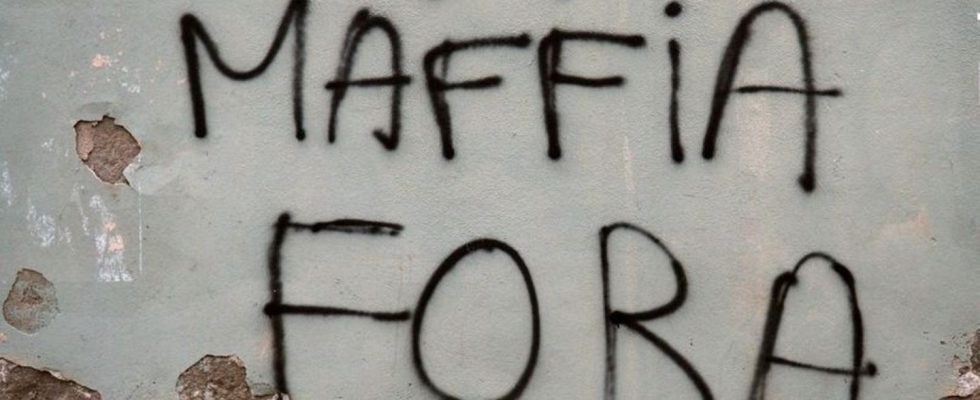Corsica is a popular sunbathing holiday destination for many Germans. But beneath the beautiful surface, invisible to tourists, there is a problem with serious consequences: the mafia.
Blue sea, rugged rocks and lots of wild nature: every year the French Mediterranean island of Corsica attracts hundreds of thousands of German holidaymakers. But what most of them have no idea is that the mafia operates underground in the holiday paradise.
Threats, extorted hush money and poorly constructed housing are just some of the consequences for local people. There are always deaths. On Wednesday, “Borgo”, a film that tells of a double murder in the Corsican gang environment, will be released in French cinemas and has already caused a sensation.
The “Island of Beauty”, as Corsica is often called, is the region in the European part of France where the most people are killed per population. Last year there were 3.7 deaths per 100,000 residents, according to the Interior Ministry, partly because of the many settlements. “The worst thing is that these cases are not solved because there are no testimonies. This is the Omertà,” says anti-Mafia activist Josette Dall’Ava-Santucci. The mafia imposes such a duty of secrecy.
25 criminal gangs on the island
For a long time there was debate about whether there was even a mafia on the popular Mediterranean island. “I think we have to be clear,” Nicolas Bessone, the prosecutor responsible for organized crime in Corsica, recently told France Bleu. “The question of whether there is a mafia in Corsica is no longer an issue. There is one there.” According to an internal report from an anti-mafia police and gendarmerie unit, quoted from the French media, 25 criminal gangs are up to mischief on the island.
As Dall’Ava-Santucci explains, the mafiosi discovered the island in the 1980s when investment plans were being developed for the mountainous spot in the Mediterranean. The criminals are now particularly active in the lucrative construction industry, the real estate business, the waste sector and the drug trade, says the 82-year-old, who is actually a doctor and founded the anti-mafia organization “Maffia Nò” with colleagues in 2019.
Bought people
It is difficult to say what extent the mafia has in Corsica today, as a large part of its machinations take place below the surface. Each of the 20 or so gangs has perhaps a dozen members. However, given the island’s population of just 350,000, this number is considerable. In addition, people are bought into judicial and tax authorities, prison guards and occasionally even the gendarmerie. Prosecutor Bessone even suspects connections to politics. According to Jean-Jacques Fagni, lawyer at the appeal court in Bastia, there are no precisely divided areas for the individual gangs. Both he and Bessone point out that the groups sometimes even worked together.
Dall’Ava-Santucci has heard numerous reports from victims of the Corsican mafia. Doors were hung because the rent hadn’t been paid on time, people tried to take their houses away, warehouses and work equipment belonging to competing companies were simply blown up, building permits were extorted and real estate prices were pushed down. The Korsin emphasizes: “An entire generation knows the mafia as employees, as company managers.” They inflated prices for public works, for example, carried them out sloppily and sometimes ran companies even though they were not competent to do so.
Tourists don’t notice anything
But none of this has any impact on the approximately three million tourists who flock to Corsica every year, says the senior citizen. “Quite the opposite!” There is no petty crime. You don’t have to be afraid of walking home at night or worry about theft. Whether vacation apartments or bars are in the hands of the mafia may not be obvious to vacationers, among whom Germans booked 3.7 million overnight stays last year, making them the largest vacation nation on the island after the French. Only a few Corsican graffiti calling for “mafia out” might catch the eye of one or two people on Bastia’s streets.
“In prison they do whatever they want”
Dall’Ava-Santucci wants to involve the population, representatives and the state itself in the fight against the mafia. Specifically, it calls for the police to be strengthened, a separate criminal offense to be introduced for mafia-related crime, lay judges in the assize court to be replaced by professional lawyers, goods belonging to suspects in the mafia sector to be immediately confiscated and bans to be extended, for example to corporate management. Prison sentences, on the other hand, were of less interest to them. “The mafia organizes itself in prison. In prison they do whatever they want.”
The film “Borgo” by Stéphane Demoustier, which will be released in France on Wednesday, is also set in prison and tells the story of a young prison guard, inspired by the double murder in Bastia-Poretta in 2017, in which two mafia figures were killed. The explosive thing about it: The trial surrounding the case is only scheduled to begin a few weeks after the film’s release. “It’s crazy to make a film while the investigation is ongoing,” says Dall’Ava-Santucci. And others probably don’t think much of the film either. At a preview at a film festival in Bastia, the hall had to be evacuated after a bomb threat. For activist Dall’Ava-Santucci there is no doubt that the mafia is behind it. “They tried to get the Omertà.”

